Find the Ideal System Tailored to Your Needs
Introduction
Importance of Clean Water
Water is the essence of life, and having access to clean water is paramount for our health and well-being. Impurities in water can pose serious health risks, from gastrointestinal issues to more severe conditions. That’s where water filtration systems come into play, acting as guardians of our water supply, ensuring we have access to safe and healthy water.
Overview of Water Filtration Systems
The world of water filtration is vast, with a plethora of systems available, each with its unique strengths and weaknesses. From activated carbon filters that trap contaminants to sophisticated reverse osmosis systems that remove even the tiniest impurities, there’s a filtration system tailored to every need. Understanding the different types of water filtration systems is the first step towards choosing the one that’s right for you.
Activated Carbon Filtration: The Guardian of Purity 💧
Activated carbon filtration stands as a stalwart defender against impurities, standing guard over your water’s purity. Like a sponge with an unquenchable thirst for contaminants, activated carbon traps and removes a wide array of unwanted substances, leaving behind a sparkling stream of refreshment. From chlorine to pesticides, this filtration method is a guardian angel for your water’s well-being.
Its benefits are as clear as a mountain stream: it effectively reduces taste and odor, leaving your water with a clean, crisp flavor. Plus, it’s a cost-effective solution that’s easy to maintain, making it a budget-friendly choice for those seeking pure water. However, it’s important to note that activated carbon filtration has its limitations. It’s not as effective against certain contaminants, such as heavy metals or dissolved solids, so it may need to be combined with other filtration methods for a comprehensive solution.
Reverse Osmosis (RO) Filtration
How it Works 💦
Imagine a water filtration system that’s like a microscopic bouncer, only letting the good stuff through! RO filtration uses a semipermeable membrane with tiny pores that act as a barrier. It allows water molecules to pass through while blocking larger contaminants like bacteria, viruses, and minerals. It’s like having a VIP pass for clean water!
Benefits and Limitations ⚖️
RO filtration offers several perks:
- Exceptional Purification: It removes a wide range of impurities, making your water ultra-pure.
- Health Benefits: By eliminating harmful contaminants, RO filtration can improve your health and well-being.
However, there are a few drawbacks to consider:
- Wastewater Production: The process creates wastewater, which can be an environmental concern.
- Mineral Removal: RO filtration can remove beneficial minerals from water, so you may need to add them back in.
Ultrafiltration (UF) Filtration
Benefits
Ultrafiltration (UF) filtration shines when it comes to removing larger contaminants and microorganisms. Its membrane’s tiny pores effectively trap bacteria, viruses, and even some heavy metals. UF systems are often used in hospitals, laboratories, and food processing facilities where pristine water quality is paramount.
Limitations
While UF excels in removing larger particles, it’s not as effective against dissolved solids and smaller molecules. Additionally, UF membranes can clog over time, requiring regular cleaning or replacement to maintain optimal performance.
Nanofiltration (NF) Filtration: A Fine-Tuned Solution
Nanofiltration (NF) is a water filtration technology that uses a semipermeable membrane to remove impurities and contaminants. It’s like a super-fine sieve that allows water molecules to pass through while trapping larger particles. This process effectively eliminates bacteria, viruses, heavy metals, and other harmful substances.
NF filtration is a step up from ultrafiltration (UF) and a step down from reverse osmosis (RO). It’s a great choice for those seeking a balance between water purification and mineral retention. Unlike RO, NF allows essential minerals like calcium and magnesium to pass through, making it a healthier option for drinking water.
Benefits of Nanofiltration:
- Removes bacteria, viruses, and heavy metals
- Retains essential minerals
- Reduces water hardness
- Improves taste and odor
- Environmentally friendly, as it doesn’t require chemicals or electricity
DIFFERENT TYPES OF WATER FILTRATION SYSTEMS ON YOUTUBE
Ion Exchange Filtration 💧
Ion exchange filtration is like a magic wand for water purification! It uses tiny, charged beads to swap out harmful ions, like lead and fluoride, for harmless ones, like sodium. Think of it as a friendly handshake between ions, where the bad guys get escorted out and the good guys take their place. This process not only makes water safer but also improves its taste and smell.
Ion exchange filters are often used to soften hard water. Hard water is full of calcium and magnesium ions, which can cause scale buildup in pipes and appliances. By removing these ions, ion exchange filters make water softer and more gentle on your plumbing.
Benefits of Ion Exchange Filtration:
- Removes harmful ions like lead and fluoride
- Softens hard water
- Improves water taste and smell
- Easy to maintain and regenerate
Distillation Filtration 💧
Distillation filtration is like a magical potion that purifies water by turning it into vapor and condensing it back into liquid form. 🧙♂️ It’s the gold standard for removing impurities, leaving you with water as pure as a mountain stream.
How it Works:
Imagine a pot of water boiling on the stove. As the water heats up, it turns into steam. This steam rises and condenses on the lid of the pot, forming droplets of pure water. Distillation filtration works on the same principle, but on a larger scale.
Benefits:
- Removes impurities, including bacteria, viruses, heavy metals, and minerals.
- Produces the purest water possible.
- Ideal for areas with contaminated water sources.
Limitations:
- Can be expensive to install and maintain.
- Slow process, taking several hours to produce a gallon of water.
- Requires a lot of energy to heat the water.
Common Applications:
- Laboratories and medical facilities
- Pharmaceutical and chemical industries
- Homes with severe water contamination issues
Ultraviolet (UV) Disinfection
Benefits and Limitations
UV disinfection is a highly effective method of eliminating bacteria, viruses, and other microorganisms from water. It works by exposing the water to ultraviolet light, which damages the DNA of the microorganisms and prevents them from reproducing. This makes UV disinfection a safe and effective way to purify water without the use of chemicals.
However, UV disinfection also has some limitations. It is only effective against microorganisms that are present in the water at the time of treatment. It does not remove physical contaminants, such as sediment or heavy metals. Additionally, UV disinfection can be expensive to install and maintain.
Common Applications
UV disinfection is commonly used in a variety of applications, including:
- Municipal water treatment plants
- Hospitals and clinics
- Food and beverage processing plants
- Swimming pools and spas
- Residential water treatment systems
CERAMIC FILTRATION
How it works 💁♂️
Ceramic filtration employs porous ceramic membranes to trap contaminants. These membranes are made from a mixture of clay, diatomaceous earth, and other natural materials. As water passes through the membrane, impurities like bacteria, cysts, and sediment get stuck, leaving you with clean, filtered water. 💧
Benefits and limitations ⚖️
-
Pros:
- Removes a wide range of contaminants
- Durable and long-lasting
- Easy to clean and maintain
-
Cons:
- Can be slower than other filtration methods
- May not remove dissolved minerals or chemicals
Common applications 🏡
Ceramic filters are commonly used in:
- Household water purifiers
- Camping and backpacking water treatment
- Emergency water filtration kits
- Industrial and commercial water treatment systems
Now that we’ve explored the water filtration world, let’s recap! 💡 Each system has its strengths and weaknesses, so the best choice depends on your water quality and needs.
For example, if you have well water with high levels of sediment and bacteria, a reverse osmosis or ultrafiltration system might be your lifesaver. 💧 If you’re dealing with heavy metals and other contaminants, ion exchange or distillation could be your go-to. 🛡️
Remember, it’s not just about removing nasties but also preserving beneficial minerals. ⚖️ So, if you’re after a balanced approach, consider activated carbon or ceramic filtration. 💧
Ultimately, the perfect filtration system is like finding your soulmate in the water world. 💖 It’s a match made in heaven that keeps your H2O pure and refreshing. 🥂
CHOOSING HOME WATER FILTERS & OTHER WATER TREATMENT SYSTEMS | CDC
CHOOSING HOME WATER FILTERS & OTHER WATER TREATMENT SYSTEMS | CDC
COMMERCIAL WATER FILTRATION SYSTEM
BEST WELL WATER FILTRATION SYSTEM
COSTCO WATER FILTRATION SYSTEM
EASY WATER FILTRATION SYSTEM
EWS WATER FILTRATION

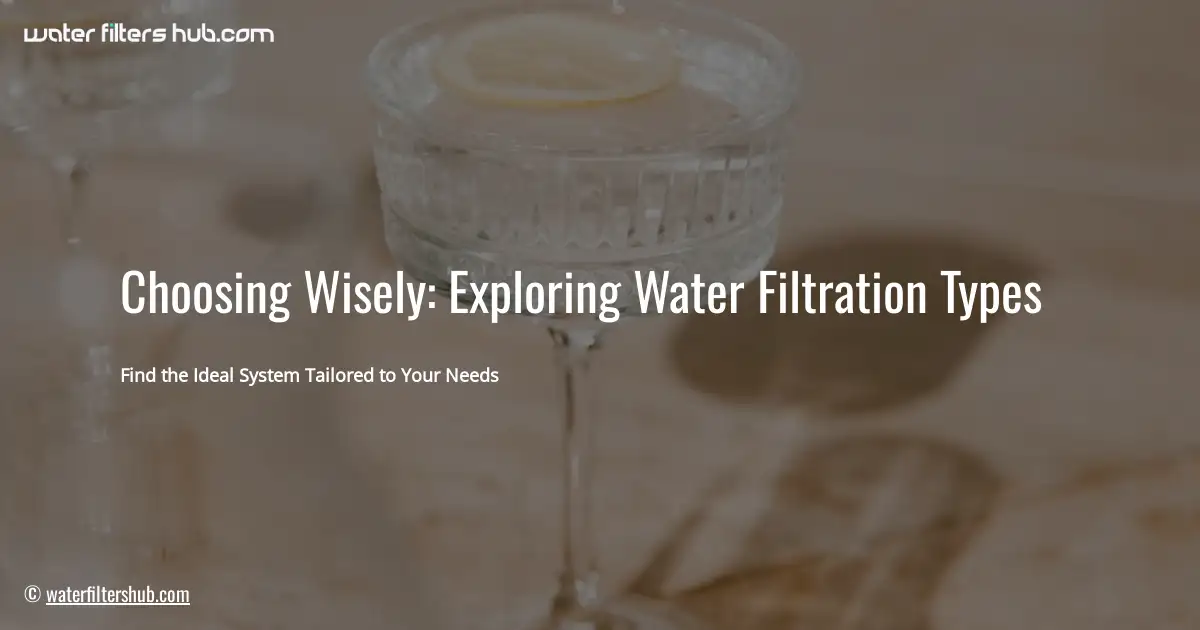
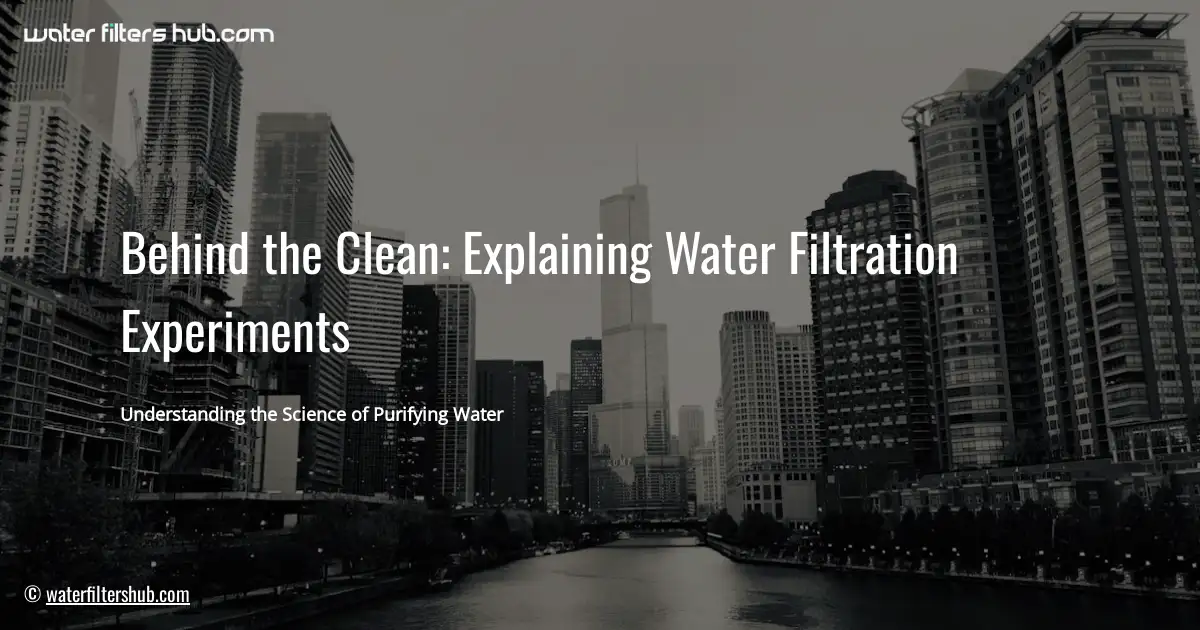
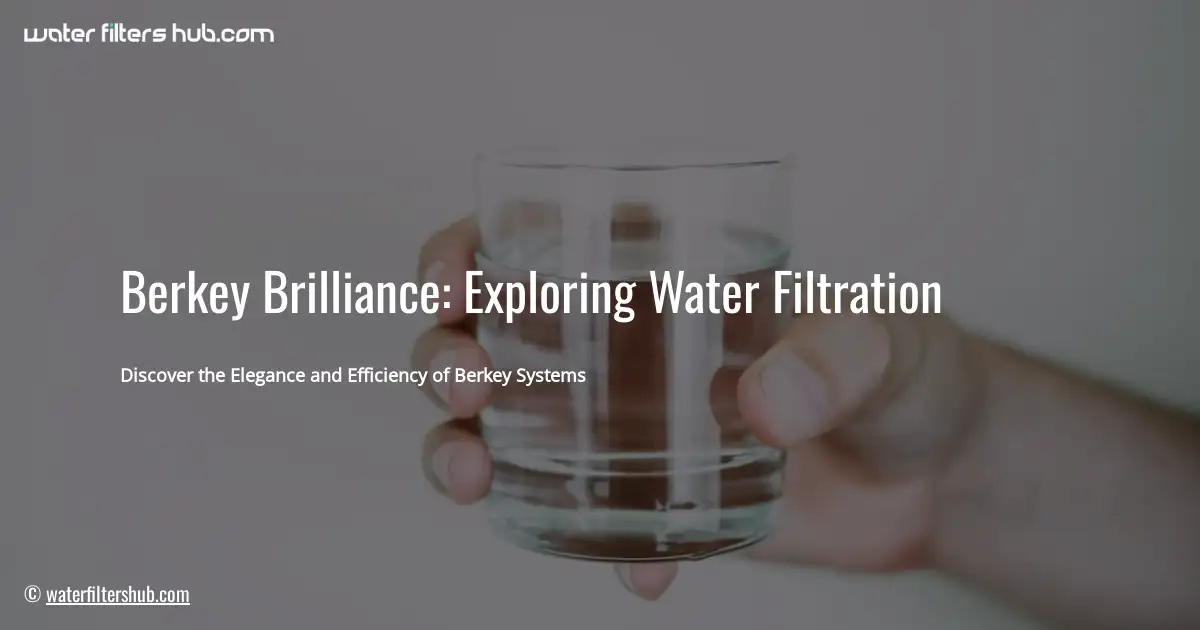
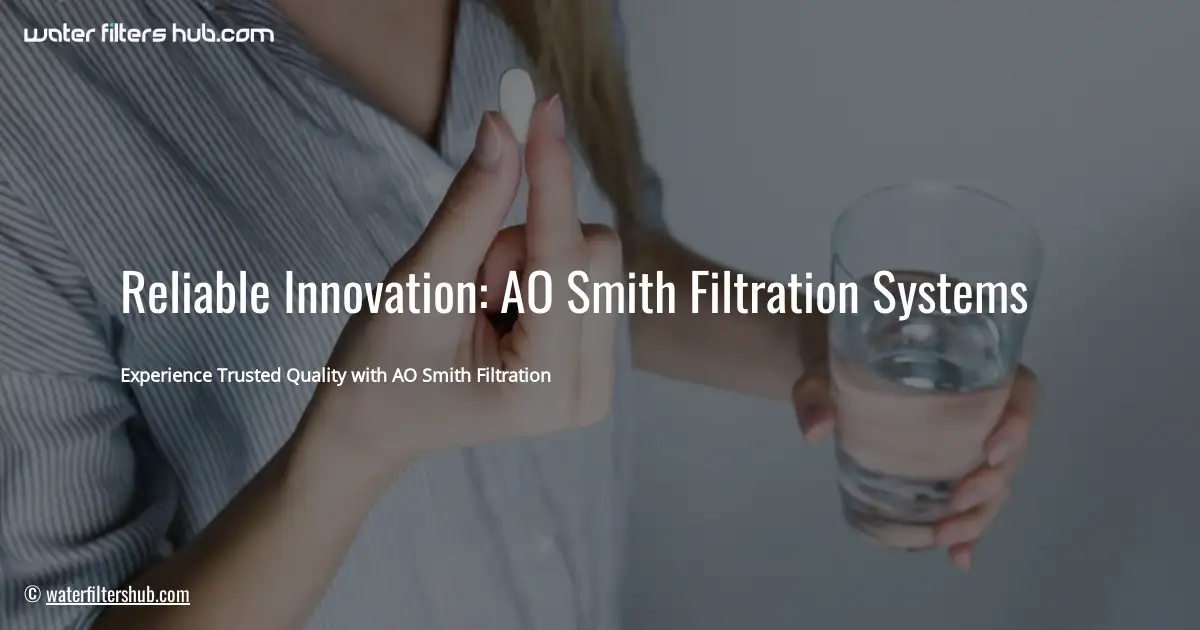

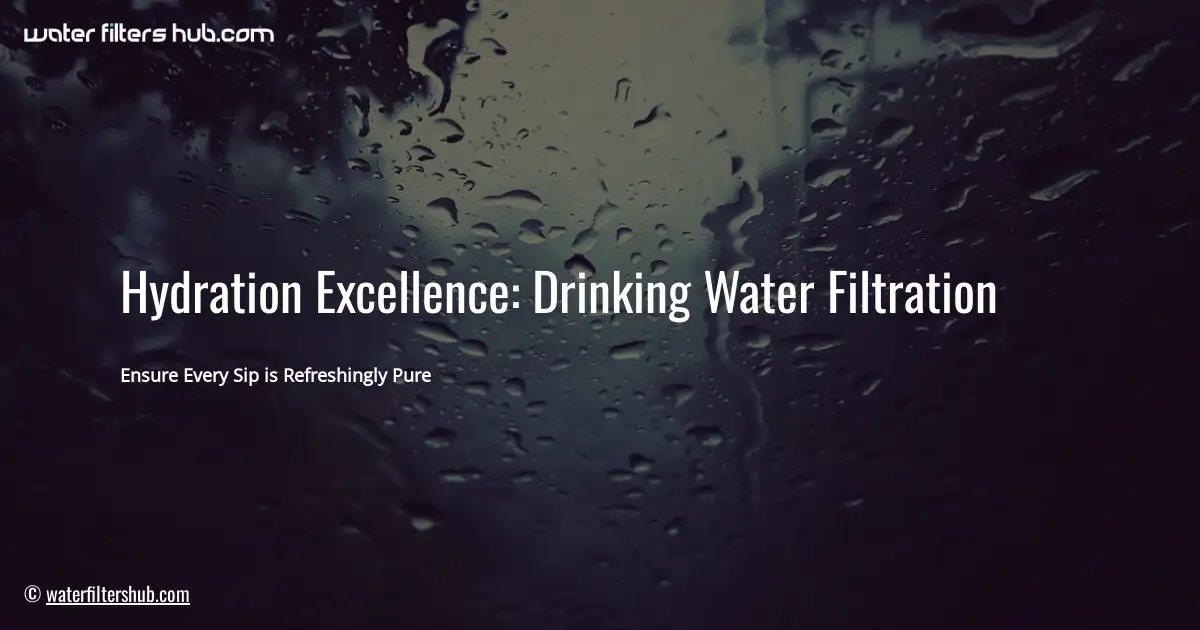
Leave a Reply